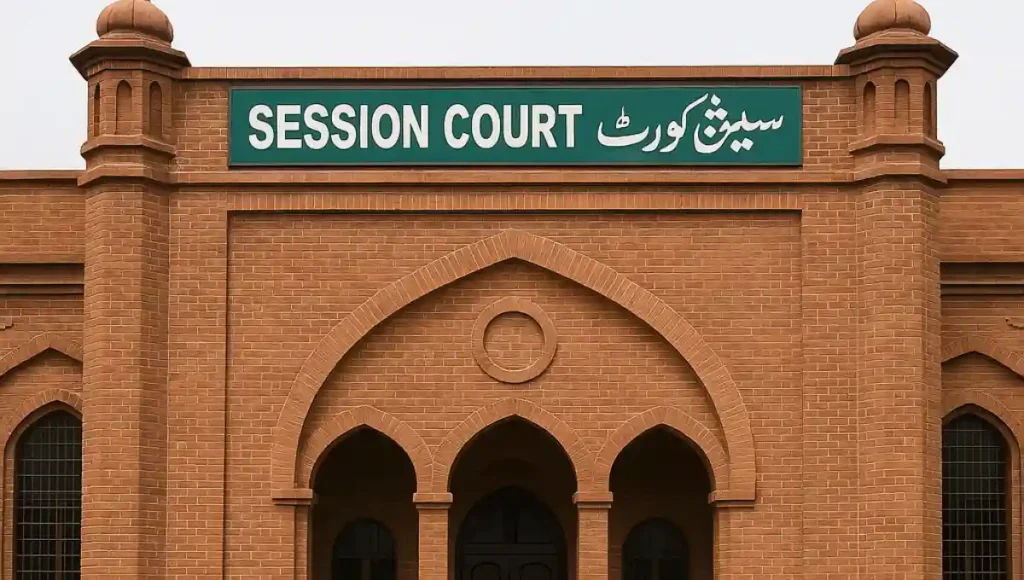Pakistan’s judicial framework is built on a layered, well-defined hierarchy that ensures access to justice for both civil and criminal matters. At the district level, District Courts and Sessions Courts serve as the primary points of contact for local disputes and serious criminal cases.
Understanding their structure, jurisdiction, and procedural differences is essential for legal professionals and citizens alike.

This article examines the roles and responsibilities of these courts, how they manage diverse caseloads, and the legal processes they employ to uphold the rule of law.
Overview of the Judicial System in Pakistan
The Pakistani judiciary is organized in multiple tiers, with the Supreme Court at its apex, followed by High Courts in each province and specialized courts such as the Federal Shariat Court.
District Courts and Sessions Courts form the backbone of the subordinate judiciary. Under the administrative control of the High Courts, these courts handle the majority of cases civil disputes are primarily resolved in District Courts, while serious criminal matters are adjudicated in Sessions Courts.
This decentralized structure helps manage an extensive caseload and supports an accessible, responsive legal process for the public.
The Role and Structure of District Courts
District Courts in Pakistan primarily function as the first-instance civil courts at the district level. They handle a broad range of civil disputes including property issues, contractual disagreements, and family matters.
Each district is generally presided over by a District Judge, whose role is to administer justice locally. Established under the Civil Courts Ordinance of 1962 (or its provincial equivalent), these courts ensure that citizens have a direct and accessible forum for resolving everyday legal conflicts. In some instances,
District Courts may also have limited jurisdiction over certain criminal matters, though this is not their primary function.
Understanding Sessions Courts and Their Jurisdiction
Sessions Courts (often referred to as Courts of Sessions) are integral to Pakistan’s criminal justice system. These courts deal with serious criminal cases such as murder, rape, armed robbery, and other offenses that carry severe penalties including life imprisonment or the death penalty.
Presided over by a Sessions Judge, these courts not only conduct trials but also serve as appellate forums for decisions rendered by lower criminal courts, like Magistrate Courts.
The jurisdiction of Sessions Courts spans the entire district, ensuring that complex and high-stakes criminal cases are handled with the necessary legal expertise and procedural rigor.
Key Differences Between District and Sessions Courts
Although both types of courts operate at the district level, their functions differ significantly. District Courts are primarily concerned with civil disputes and provide accessible, local justice for everyday legal issues.
In contrast, Sessions Courts are dedicated to criminal matters, particularly those involving serious offenses. The legal processes in these courts vary: civil cases typically follow a detailed procedure that includes the filing of a plaint, submission of written statements, and
comprehensive evidence gathering, while criminal proceedings in Sessions Courts tend to be more expedited, reflecting the urgency and severity of the charges involved.
The Legal Process in District and Sessions Courts
For civil cases in District Courts, the process begins with the filing of a plaint accompanied by supporting documents. The court issues summons to all parties, collects written statements, and reviews documentary evidence before holding oral hearings that culminate in a judgment.
In criminal cases, Sessions Courts follow procedures laid down in the Code of Criminal Procedure, 1898. After the police conclude their investigation and submit their report, the Sessions Court conducts hearings where both prosecution and defense present their cases.
The judge then pronounces a verdict—sentences, particularly those involving capital punishment, are subject to confirmation by higher courts, ensuring a system of checks and balances.
FAQs:
Q: What is the primary role of District Courts in Pakistan?
District Courts primarily resolve civil disputes such as property issues, contractual disagreements, and family law matters. They serve as the first point of contact for citizens seeking justice on local civil issues.
Q: How do Sessions Courts differ from District Courts?
Sessions Courts handle serious criminal cases—including murder, rape, and armed robbery where severe penalties may apply. They also function as appellate courts for decisions from lower criminal courts, ensuring that complex criminal matters are adjudicated by experienced judges.
Q: What procedural laws govern these courts?
District Courts generally operate under the Civil Courts Ordinance of 1962 (or related provincial legislation), while Sessions Courts follow the procedural rules set out in the Code of Criminal Procedure, 1898.
Q: How are decisions from Sessions Courts reviewed?
Decisions rendered by Sessions Courts, especially those involving severe penalties, can be appealed to higher courts, including the High Courts, ensuring that there is a system of checks and balances within the judicial hierarchy.

